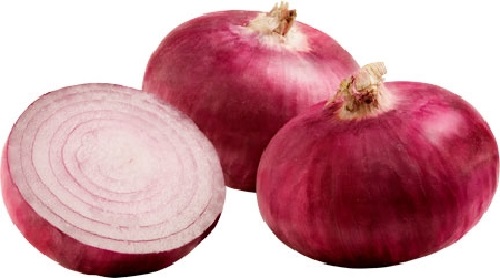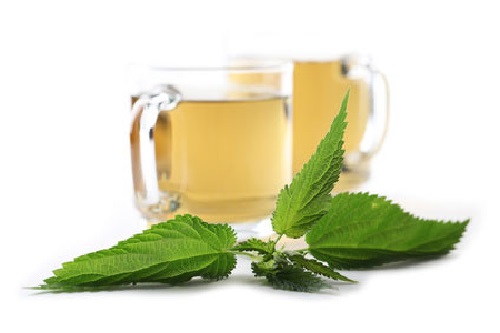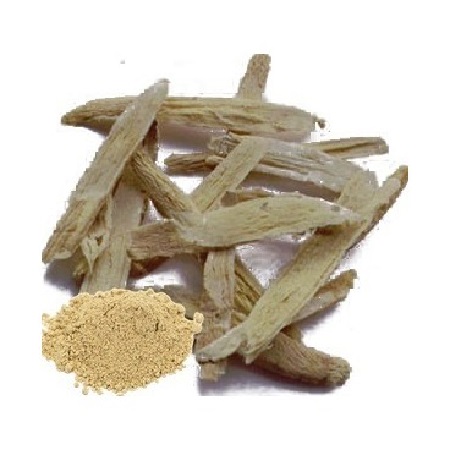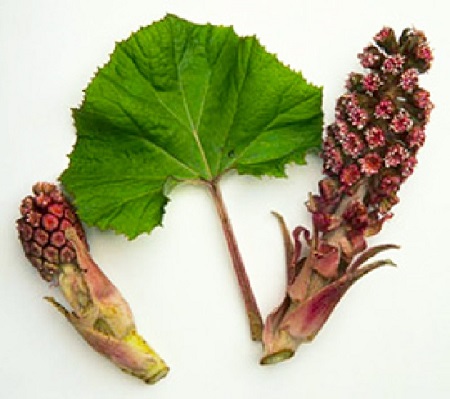Seasonal allergies are quite common nowadays and one main reason is due to climate change. They occur due to pollen or dust and sometimes even due to animal skin or fur. Normally, people with sensitive immune systems are affected the most as they inhale these through their nose. Most common symptoms of allergies are sneezing, nasal congestion, wheezing, itchy skin, etc. Allergy season has been hitting earlier than normal for the past few years. The culprit? Climate change: warmer, drier air is prompting trees to release their offending pollen prematurely. Stay sniffle-free with five foods and herbs that will build your defenses.
The following can serve as pollen allergy home remedies:
Red Onions
The outer flesh of this pungent bulb is high in quercetin (about 40mg per onion), an antioxidant that has antihistamine and anti- inflammatory powers. It may work by reducing DNA damage and the amount of histamines our bodies make in response to pollen, dust and other allergens. Quercetin is also found in apples (7mg per apple) and in red wine (2mg per glass). While every little bit counts, you’ll need to take a supplement to get the recommended 500 mg per day. Thus, red onions are a very effective way to bring pollen allergy relief.

Nettle Tea and Extracts
Extract from nettle, a thorny, leafy herb, can help protect mast cells by lessening their rupture during an allergic reaction, according to a study in Phytotherapy Research. This means fewer chemicals like histamines, prostaglandins and cytokines get spewed into your body to bring on nasty symptoms. You can take nettle as a capsule (500mg per day) or drink a tea or tincture – the extract in liquid form.

Astragalus
This traditional Chinese herb may help the body adapt to stress and illness with its antibacterial, anti-inflammatory and antiviral properties. One study found that it helps reduce allergy symptoms. Try dried astragalus root in capsule form (about 1500mg per day) – with your doctor’s blessing, of course.

Butterbur
Extract from the leaves and roots of this shrub were found to be just as effective at fighting allergy symptoms as some over- the-counter antihistamines, according to researchers in Europe. Take 50-100mg twice per day, recommends Dr. Evangeline Lausier, assistant professor of medicine at Duke University, US.

Oranges
This fruit can pack up to 100mg of vitamin C, a powerful antioxidant and antihistamine that can help block the chemicals that cause swelling, runny nose and itchy eyes. Preliminary research suggests that allergy symptoms may improve when you eat high doses of vitamin C (up to 2000mg per day).
“Try to drink several glasses of orange juice daily,” says immunologist Dr. Marianne Frieri.

If that’s too much citrus, supplement your OJ intake with other vitamin C-rich foods, including yellow capsicum (340mg per capsicum), kiwifruit (165mg per cup), strawberries (100mg per cup) and broccoli (80mg per cup).
Weather plays an important factor in the creation of seasonal allergies. Children are more susceptible to these allergies. Do consult your doctor to accurately diagnose the kind of allergies and suggest appropriate the right medication for season allergies treatment. As for the weather, below are a few weather sites which provide information about the seasonal allergy forecast.
Other useful links:
-end-




































